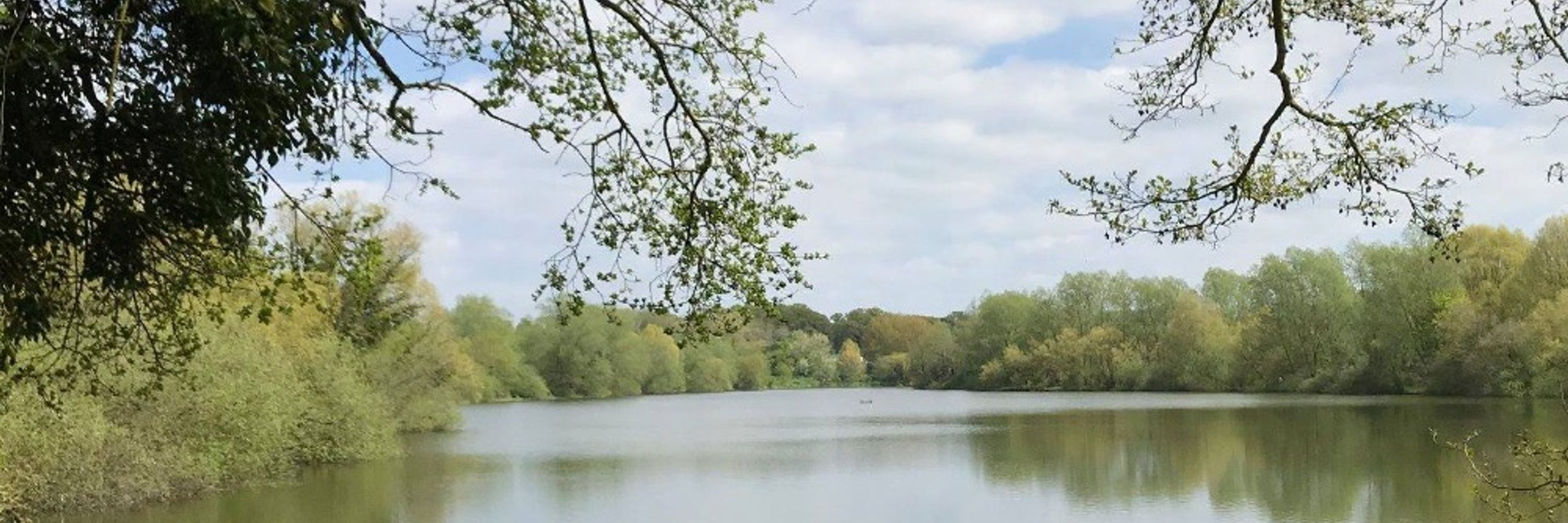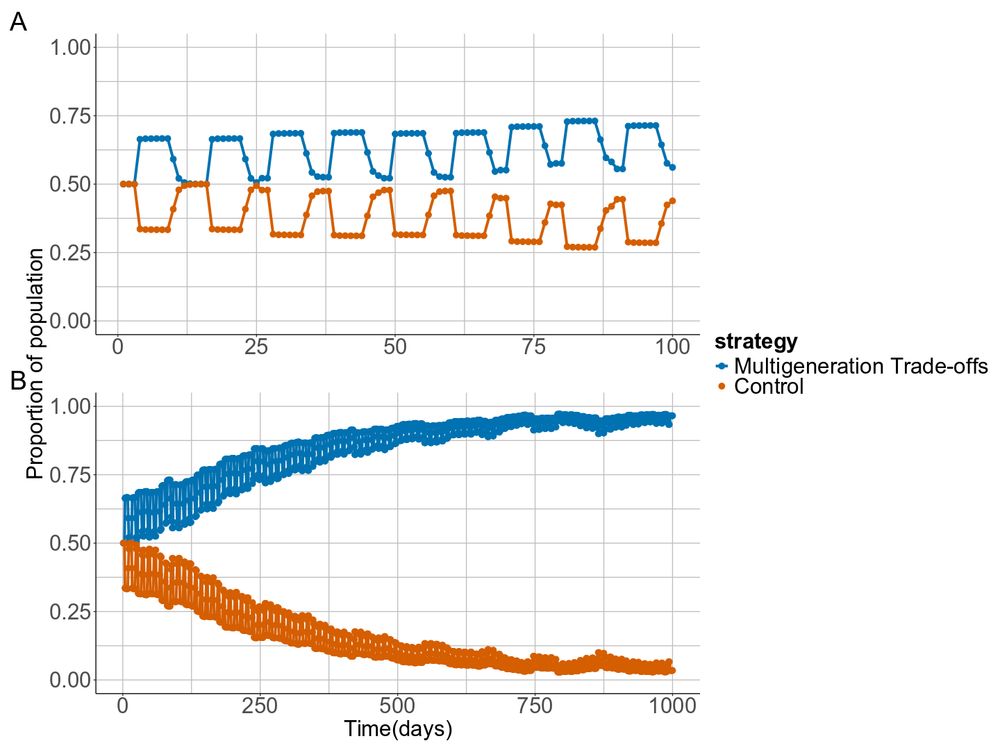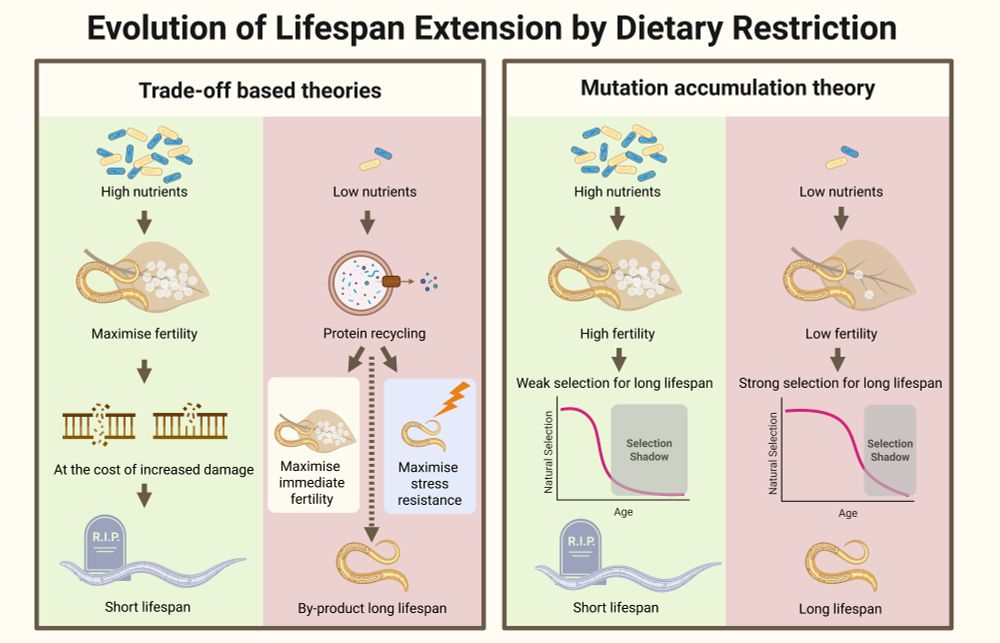


Here, the story flips
Descendants of starved ancestors showed:
⬇️ lifetime reproduction
⬇️ λ
⬇️ survival
The F1 benefits are paid for by F3

Here, the story flips
Descendants of starved ancestors showed:
⬇️ lifetime reproduction
⬇️ λ
⬇️ survival
The F1 benefits are paid for by F3
⬆️ reproduce earlier
⬆️ higher λ
⬆️ better survival in at least some environments
Short-term starvation of parents - better offspring - looks like starved parents invest more per offspring

⬆️ reproduce earlier
⬆️ higher λ
⬆️ better survival in at least some environments
Short-term starvation of parents - better offspring - looks like starved parents invest more per offspring
⬇️ lifetime reproduction
⬇️ rate-sensitive fitness λ
⬇️ survival
Reproduced later, produced fewer offspring overall

⬇️ lifetime reproduction
⬇️ rate-sensitive fitness λ
⬇️ survival
Reproduced later, produced fewer offspring overall

Transgenerational / intergeneration fitness effects can be adaptive, but they can also trade-off with each other:
New work led by Isaac Harris, preprint:
tinyurl.com/yp2b6tjm

Transgenerational / intergeneration fitness effects can be adaptive, but they can also trade-off with each other:
New work led by Isaac Harris, preprint:
tinyurl.com/yp2b6tjm
Our analytical model shows DR-driven lifespan extension evolves because DR suppresses fertility—this strengthens selection against mortality compared to full feeding environment
Works with different genes acting in different environments, or when gene expression differs between environments 📉

Our analytical model shows DR-driven lifespan extension evolves because DR suppresses fertility—this strengthens selection against mortality compared to full feeding environment
Works with different genes acting in different environments, or when gene expression differs between environments 📉
Classic theories say dietary restriction (DR) extends life by shifting resources from reproduction to survival or improving cellular housekeeping.
But we tricked C. elegans into reproducing under DR (using food odour). Surprisingly, their survival stayed just as high!

Classic theories say dietary restriction (DR) extends life by shifting resources from reproduction to survival or improving cellular housekeeping.
But we tricked C. elegans into reproducing under DR (using food odour). Surprisingly, their survival stayed just as high!
Mutation accumulation underpins evolution of lifespan extension by dietary restriction
We often think about saving energy or recycling waste - but we show how evolution acting on mutation load can generate longer life on low food 🧵
🔗 tinyurl.com/jn5ryhxv

Mutation accumulation underpins evolution of lifespan extension by dietary restriction
We often think about saving energy or recycling waste - but we show how evolution acting on mutation load can generate longer life on low food 🧵
🔗 tinyurl.com/jn5ryhxv






academic.oup.com/evlett/advan...

academic.oup.com/evlett/advan...

